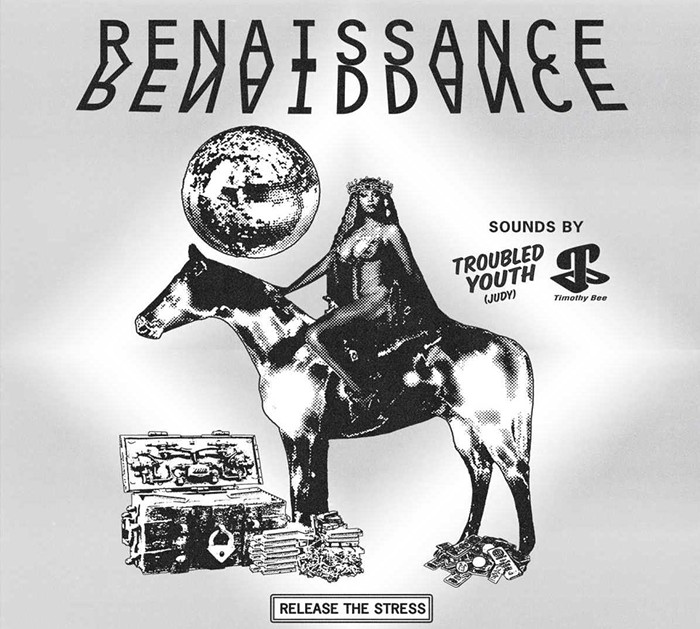On June 25, the Recording Industry Association of America (RIAA) announced that, for the time being, it would cease pursuing lawsuits against filesharing websites like KaZaA, Grokster and Aimster--sites designed for users to download and "share" entire albums at no cost.
However, the lobby organization then announced that instead, they'd be coming after us.
The RIAA is mostly comprised of the five major labels, which control 90% of the music distributed in the United States. After a recent court decision ruled filesharing websites themselves aren't responsible for how people use them, RIAA redirected their legal ire towards individual citizens sharing copyrighted music on the web.
Currently gathering evidence and contact information on the culprits (by using special software that scans downloaded files for copyrighted material), the RIAA has made clear its intent to file hundreds of copyright infringement lawsuits, and prosecute downloaders to the fullest extent of the law. In this case, "fullest extent" can amount to prison time and thousands of dollars in fines--and, if they tack on hypothetical lost revenue, even millions.
Earlier the same week, during a hearing on copyright abuse, Senator Orrin Hatch (R-Utah) considered the use of remote technology that would actually destroy a computer if it were being used to share copyrighted files. According to the Associated Press, Hatch commented, "[It] may be the only way you can teach somebody about copyrights."
In a press release, the RIAA cited filesharing as taking a "devastating toll on artists, musicians, songwriters, retailers and everyone in the music industry," claiming that every time you download a song, you're "stealing" from musicians, to the yearly tune of $4.5 billion in losses worldwide.
The release contains public service announcements from musicians, sounding off in typical scare-tactic style (Richard Carpenter's statement: "It is [serious business]! It's theft and we need to do all that we can to see that it stops!"). Certain statements are surprising. Missy Elliott, for instance, makes a shaky case for the underdog, noting, "Hiphop has always been about the attainable dream turning your back on the bootleggers helps us pave the way for the next generation of entrepreneurs."
Most of the musicians, though, come off sounding like music piracy is the sole reason they're not being paid what they're worth that if filesharing continues, they will all be rendered homeless and, eventually, starve to death. In fact, Art Alexakis, of the local band Everclear, states, "Stealing recorded music is something that we have to stop. It's taking money out of my kid's mouth [sic]. That's the way I look at it."
While it's safe to say that most of those people have access to more money than most filesharers will ever see in their lifetime, it is true they should be compensated. It is also true that, in general, artists of all kinds are neither paid nor respected enough for their work in America. The real issue here, then, is the RIAA's vilification of filesharers as dangerous criminals, aka The Reason the Corporate Music Industry is Failing. The fact that the RIAA has enlisted its artists to echo their sentiment speaks volumes about the stronghold labels have over their musicians. In an industry rife with recoupables and royalty percentages usually favoring the side of the record company over that of the musician, it is both alarmist and disingenuous to blame filesharing citizens as the sole villains in the profit-loss margin.
The RIAA states on their website that "Eighty-five percent of recordings don't generate enough revenue to cover their costs." However, it's well known that, generally, major labels A. spend exorbitant amounts of money on recording and B. require the artist to pay the company back for said recording costs, calling it "recoupable."
If they're searching for the main drain on corporate music industry profits, perhaps the RIAA should take a look in the mirror.
Hello, There is a Recession
According to the RIAA, worldwide music sales have fallen $14 billion dollars in the past two years, from $40 billion in 2000 to $26 billion in 2002. The RIAA attributes this largely to the increasing number of internet users who illegally download music.
On the other hand, according to a report by James K. Willcox in Sound and Vision, the recession in 1991 (before filesharing existed) facilitated an even larger drop-off in CD sales growth--from 15 to four percent. "When you consider that the country's gross domestic product (GDP) declined 36 percent in 2002... the recent nine percent decline in sales doesn't seem so dramatic," observes Willcox. Similarly, he goes on to say that the cost of CDs has steadily risen despite the decreased GDP, from an average of $14.31 in 1998 to $17.09 in 2002.
So where's the extra money going? We already know that most musicians have to pay their labels back. That means it's directly into the pockets of the labels that comprise the RIAA.
Paying Back Your Own Money
Thanks to various widespread articles (including Steve Albini's famous 1994 treatise, "The Problem with Music"), it's generally known that, unless you're a gigantically popular act with real negotiating power like Britney Spears, your major label is going to get the better end of the stick. According to Music Business Solutions, an independent website run by Peter Spellman, the Director of Career Development at Boston's Berklee College of Music, most artists only make six percent of a CD's total sales (90 cents per $15 CD).
If they're so concerned with "stealing from the artist," why hasn't the RIAA explored more ways to distribute releases online by eliminating the middleman and pumping cash directly to the artist?
Because they ARE the middleman. Doing so would all but eliminate the need for a record label. And, since the RIAA is comprised of major record labels--aka the music industry, aka people who make money off a musician's product--this product would potentially put them out of business.
Says Spellman, "The entire fabric of the recording industry is undergoing a transformation right now. The thing that differentiated the industry from artists in the past was that the industry controlled the distribution channel; it knew how to get music to people's ears and it owned the means to do it. Now, with digital tools from desktop recorders to the World Wide Web, artists have the distribution power in their own corner. They are now able to galvanize a global audience over time and create successful support networks for their own music careers.
"I believe we are witnessing the decline of the 'music business' and the rise of the 'musician business' (to borrow a phrase from John Perry Barlow). We may not see a lot of millionaire artists in this new picture, but we'll be seeing more and more 'middle class' musicians making a sufficient living, while still having full ownership rights to their creations. Today's musicians need to think outside the box of the traditional approaches and creatively engage with the new possibilities. The power belongs to you, and it's an awesome responsibility."
Scare Tactics
The preceding paragraphs explain the psychology behind the RIAA's desperate move to exert a legal heavy hand over filesharers and websites. While it is true that copyright infringement is illegal, maybe it shouldn't be--maybe it's time to explore new methods of regulating artistic commerce, updating archaic laws into the computer age to fit our ever-malleable needs.
The official website of the RIAA (riaa.org) includes a section on piracy--how to report it, what it is, and its penalties. They even offer a $10,000 bounty to those who "provide the association with information regarding CD manufacturers illegally producing RIAA member company sound recordings."
Like much of their output, it's written in alarmist and, sometimes, hilarious language that rings with a tone similar to the dramatic voiceovers at Epcot Center. "The Future Belongs to CD-R," one headline announces proudly. The page, however, doesn't explain why CD-Rs are the future; instead, it details how CD-Rs make "music piracy" easier, and how the RIAA has launched undercover CD-R crackdowns in four major cities.
In a subsection marked "Buyer Beware--the Six Deadly Sins of CD Rip-offs," a list of CD-R warning signs includes "blurry graphics, weak or bad color," "misspelled words," "the record label is a company you've never heard of," and "cheaply made insert cards." It's comical in that, while these characteristics describe the Nelly bootlegs you can buy off a table in St. Mark's Place... they also describe the majority of legitimate independent label releases today.
Almost certainly, RIAA's fear of the internet translates to a fear of independent labels. In fact, the proliferation and success of indie labels in the past five years has indisputably cut into the profits of the majors. This past April, the Christian Science Monitor published an article stating that, despite the large downturn in major label sales, some indie labels have had a 50-100 percent increase in profits.
The RIAA's resistance to malleability and their paranoid response to file downloading shows exactly where the traditional corporate music industry is headed: into the shitter. So once again who's running scared?
Want to read more hilariously worded hysteria? Visit riaa.org.


















